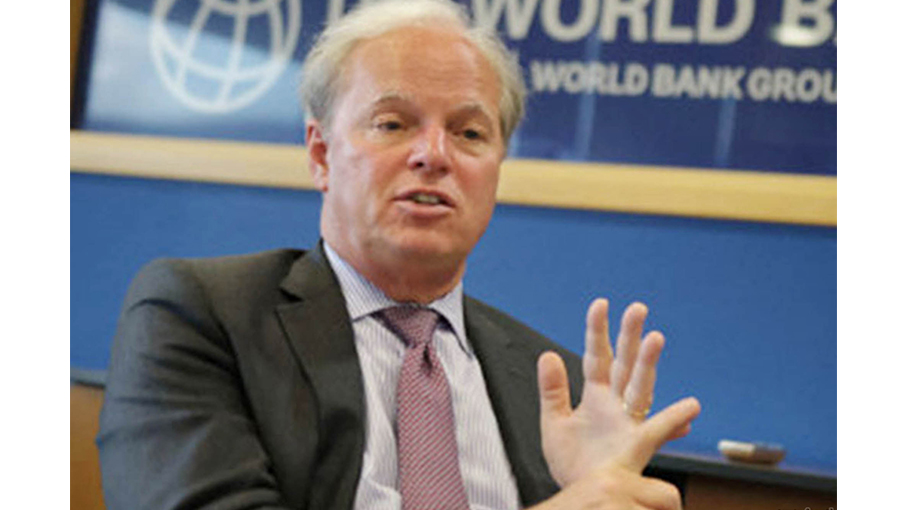Bangladesh role model in poverty cut: WB

Bangladesh has clearly shown the world what can be done to reduce poverty dramatically through successful innovations in human development, women’s empowerment, and climate adaptation.
Axel van Trotsenburg, the World Bank’s Managing Director of Operations, made the comment on Friday on the eve of his official visit to Bangladesh.
He will arrive in Dhaka today (Saturday) on his first official visit to the country.
Axel said, “The World Bank is proud of its 50-year partnership with Bangladesh and being part of the country’s remarkable development journey. I look forward to my visit and to seeing these achievements first-hand.”
During his three-day visit, Trotsenburg will join a public event in Dhaka on January 22 to mark 50 years of the partnership between Bangladesh and the World Bank Group and celebrate the country’s remarkable development achievements.
Trotsenburg will meet with the Prime Minister Sheikh Hasina, the Finance Minister, and other senior government officials, civil society representatives, and development partners, and visit World Bank-supported projects.
He will be accompanied by Martin Raiser, World Bank Vice President for the South Asia Region.
The World Bank was among the first development partners to support Bangladesh after its independence. Since then, the Bank has committed about $39 billion, mostly in grants or concessional credits to Bangladesh.
Bangladesh currently has the largest ongoing program supported by the World Bank Group’s International Development Association.
Earlier, Abdoulaye Seck, the newly appointed World Bank Country Director to Bangladesh and Bhutan, said Bangladesh is a true global champion in various sectors including GDP growth, poverty reduction, women empowerment and climate adaptation.
He extolled highly the economic development of Bangladesh achieved over the years.
“Bangladesh's economic capacity is much better than that of any other countries in Asia. Bangladesh has taken various timely steps to deal with Coronavirus under the leadership of Prime Minister Sheikh Hasina which has helped maintain this growth,” he said.
Bangladesh is now the 35th largest economy in the world, according to a report titled ‘The Top Heavy Global Economy,’ published by ‘Visual Capitalist’.
Citing IMF statistics, Canadian online publication ‘Visual Capitalist’ reported this information on December 29. According to the report, Bangladesh is the 35th largest economy in 2022 with a GDP size of $460.8 billion. Earlier, the rank of Bangladesh was 41st.
However, the country’s economy has started flourishing at the beginning of the New Year despite the fear of global crisis and recession.
Export earnings, the main sector of foreign exchange earnings, witnessed a record growth. Last November, the export sector achieved a milestone to cross $5 billion earnings for the first time to stand at $5.09 billion in a single month.
The country has also witnessed a record in export earnings in December as well amounting to $5.37 billion, up by over 9 percent in the corresponding period of the previous year.
The remittances also increased by 4.23 percent to stand at $1.70 billion in December 2022.
Remittance crossed $10 billion during the July-December period after its decline for two consecutive months.
According to the data of Bangladesh Bank, in the first six months of the current fiscal year 2022-23, expatriates sent about $10.42 billion.
In last November, expatriates sent $1594.70 million. An average of $53.10 million poured in every day. In the previous two months, September and October, $49.20 million and $51.30 million respectively came daily.
On the other hand, 1.15 million people have gone overseas for work in 2022, surpassing all previous records.
If this large number of expatriates start sending remittances to the country, it is expected that the country's foreign exchange crisis will disappear.
Moreover, inflation has been declining for the last four months. In December, the wages of workers in various sectors of the country increased by 7.3 percent, which is more than that in the previous two months of October and November. This will raise the purchasing power of the working class.
On the other hand, the private sector credit growth increased to 13.97 percent in November, 2022 due to the installation of industries in new economic zones, according to Bangladesh Bank data.




